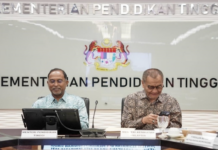GEORGE TOWN,Oct 16: Tourism industry players and other stakeholders in Penang have mixed feelings over a recent proposal that would allow condominiums to ban short-term rentals and homestays that are offered under the AirBnb platform.
The move is expected to severely limit the company’s presence in the state, and impact the number of tourists that could eventually return to Penang in a post-pandemic environment.
Earlier this week, the Penang state assembly heard that guidelines were being prepared to allow joint management bodies (JMB) of apartments and condominiums to enforce the ban on homestays through fines written into the JMB house rules.
Uzaidi Udanis, president of the Malaysian Inbound Tourism Association, told FMT that finding ways to manage AirBnb’s impact is an issue “every government has had to face”.
“Strict regulation would be a better move than outright banning of the platform.
“These short-stay places are a threat to the hotel business, and they can also be a threat to local communities as these units attract strangers and teenagers who might make noise and create a nuisance.”
However, he conceded that AirBnB is also good for tourism players, as it helps to bring in new customers, such as big family groups who might want a single house rather than many hotel rooms.
Uzaidi added that having regulations to ensure a level playing field for hotels is the best approach, because under the current environment, ending short-term rentals would hinder an already struggling tourism industry.
Tan Hun Beng, chairman of the Real Estate and Housing Developers’ Association (Rehda) Penang, downplayed worries that a ban could send property prices plummeting.
“It won’t affect property prices at all. People who are intending to buy a property for investment can still look for commercial properties like serviced apartments or business suites to turn them into AirBnbs”.
He said it is “high time” the authorities intervene, as he thinks it is “inappropriate for residential properties to be used for commercial purpose”.
“The original plans (for residential properties) were for people to stay, not for people to do business. That is why there have been so many complaints.”
However, the operator of a tourist attraction in Penang, who declined to be named, slammed the move, saying the state will “lose, big time” if a ban is enacted.
“It will hurt everybody, not just people like me and other tourism players. It will hurt the shopping malls, the restaurants, the real estate developers, the whole economy.”
He believes that nearly half of Penang’s visitors stay in AirBnbs, and that they will choose to spend their tourist dollars elsewhere if the option is no longer available to them.
“People want to travel more, and in order to do that, you need to offer affordable accommodation. Going against the trend is dangerous,” he said.



















